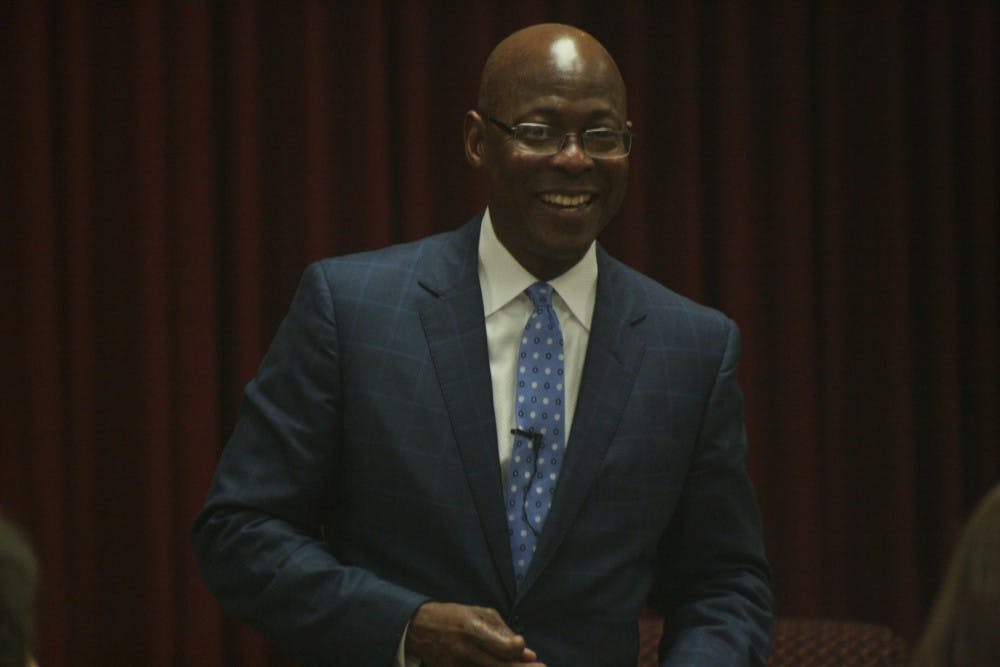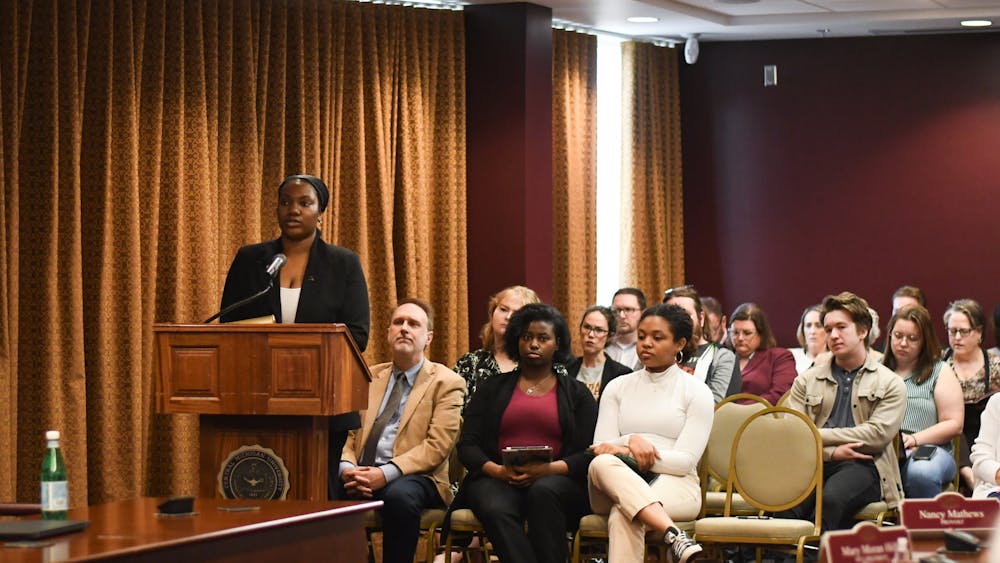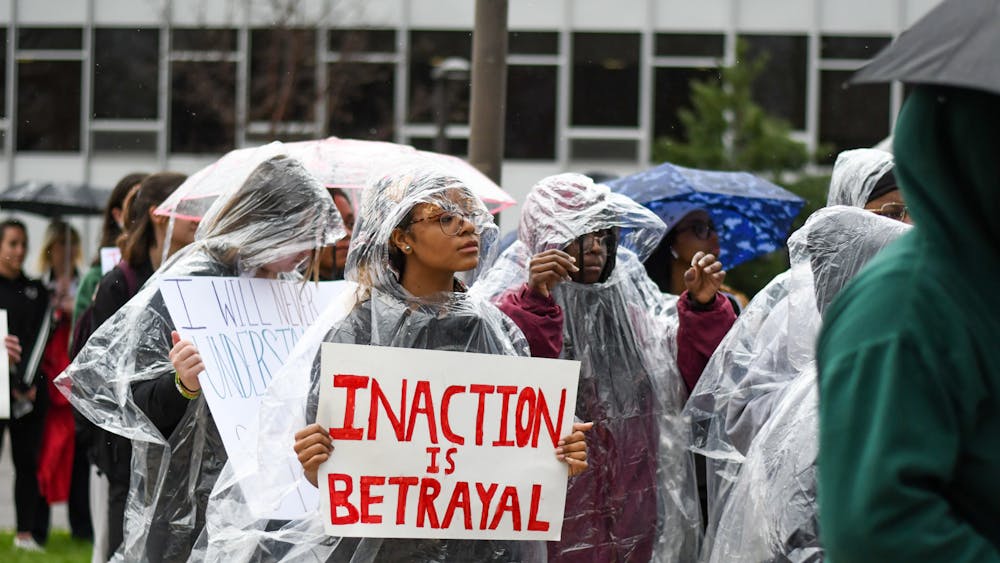Cecil Howard concludes chief diversity officer forums by addressing CMU's potential

After researching Central Michigan University, Cecil Howard said there are strengths that he feels could be improved.
“The more I studied and researched CMU, the more intrigued and impressed I became with what’s going on at your university and where you’re poised to go,” Howard said.
Howard was the last of four candidates to participate in forums for CMU’s vice president and chief diversity officer. He visited CMU on March 29.
Howard serves as interim associate vice president, chief diversity officer and Title IX coordinator for the University of South Florida system, in addition to holding the chief diversity officer position at the University of South Florida St. Petersburg.
"It's kind of crazy doing two jobs at once,” Howard said. “But someone's got to do the work.”
What Howard hopes to bring to CMU involves intentionally putting together groups of diverse people who might be offended by each other’s opinions —he said, people who may distrust or even dislike each other. These 12-person groups would meet two hours once a week for six weeks, discussing issues such as race and implicit bias.
Ultimately, these groups would decide on a recommendation to solve a problem they see around campus. They would then pitch that idea to student government, administration or even the state legislature.
Howard called this idea “earth-shattering” and “life-changing” for him.
Additionally, these diverse groups have a unique ability to persuade people in authority, Howard said.
“Typically, you see people with the same characteristics coming to ask you to dismantle something and it's easy for you to tell them ‘no,’” Howard said. “But when you see a diverse group of people from all backgrounds asking for action, you are blown away because you now see that everybody is empathizing with everybody else”
Howard returned to the importance of discussion a number of times during the forum.
“Our ability to talk, vent, even to argue and to shout is critical,” Howard said of the March 2 shooting and any racial bias toward African American students in the aftermath. “It's important we talk. It sounds so simple, but guess what? It's the thing we do least.”
Howard also said he’d take a “listening tour” if he gets the position. He would talk with grounds people, students, administrative assistants, deans, department heads, faculty and others.
“It’d be difficult to create a vision if you’re not including all these very, very important
stakeholders,” Howard said.
For the role, Howard said it is “critically important” to show empathy in a wide variety of ways. He said the role is going to interact with everybody on campus.
“I've cried with a student that was crying,” Howard said. “I've hurt with students who were hurting. We have to be able to see things from another person's perspective. If our students are not here, we're not here. If you're not here, I'm not here and other administrators aren't here.”
Howard said at the end of the day, everyone is alike in more ways than different.
"Engaging in dialogue and having good discussions will always end with a good outcome,” he said.




